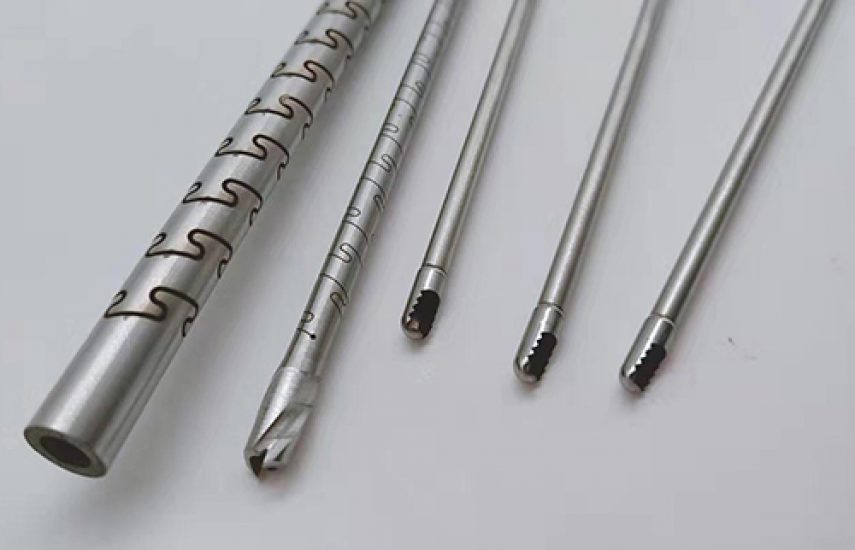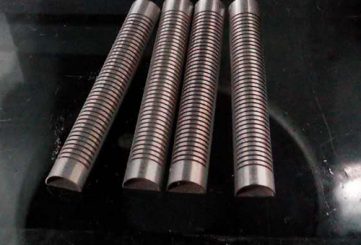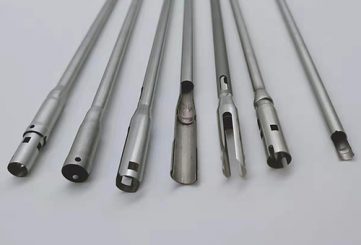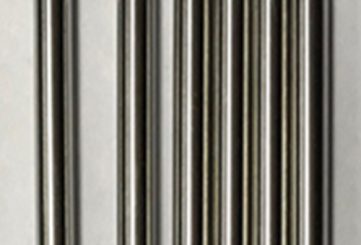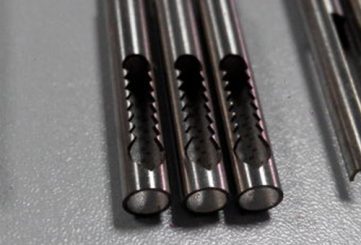Orthopedic Soft Drills and Planers
Orthopedic Soft Drills and Planers – Precision Tools for Gentle Bone Surgery
Orthopedic Soft Drills and Planers are high-precision surgical tools designed for delicate bone perforation and shaping in orthopedic and trauma surgeries. Manufactured using advanced five-axis laser cutting technology, these tools deliver exceptional accuracy, durability, and a burr-free finish. Crafted from medical-grade materials such as stainless steel, Nitinol, or Cobalt-Chrome alloys, they ensure reliable performance in demanding surgical environments. The laser-machined components feature smooth surfaces and intricate geometries, minimizing tissue trauma and enhancing surgical outcomes. Ideal for modern orthopedic procedures, these tools meet the stringent demands of contemporary healthcare.
Key Features:
- Ultra-Precise Machining: Seam width of 18–30 µm with machining accuracy of ≤±10 µm for intricate designs.
- Burr-Free Finish: Smooth edges reduce tissue damage and ensure safe operation.
- Material Versatility: Compatible with high-performance alloys for diverse surgical needs.
- High Durability: Engineered for wear resistance and long-term stability.
- Efficient Chip Removal: Spiral grooves facilitate debris evacuation, reducing heat and tissue trauma.
- Biocompatibility: Meets standards for safe interaction with human tissues.
Certification and Standards:
Certified under ISO 9001, ISO 13485, and ISO 10993 for quality management and biocompatibility. Compliant with CE and FDA regulations for medical device safety and efficacy.
Stainless Steel SUS304:
Medical-grade SUS304 stainless steel (austenitic chromium-nickel alloy), offering excellent corrosion resistance and mechanical properties.
- Biocompatibility: Low risk of allergic reactions or toxicity, ideal for direct tissue contact in medical procedures.
- Mechanical Properties: High tensile strength (approximately 505 MPa) and elongation (up to 40%), providing flexibility without brittleness.
- Surface Finish: Laser-machined for smooth, burr-free edges, reducing the potential for tissue trauma or contamination.
- Thermal Stability: Maintains integrity across a wide temperature range, suitable for sterilization processes like autoclaving.
316L Stainless Steel:
316L Stainless Steel is a medical-grade austenitic chromium-nickel alloy renowned for its excellent corrosion resistance and biocompatibility. With a tensile strength of approximately 485–550 MPa and elongation up to 40%, it offers durability and flexibility without brittleness. Its low carbon content enhances weldability and resistance to intergranular corrosion, making it ideal for medical implants and instruments. Laser-machined for smooth, burr-free surfaces, it minimizes tissue irritation in sensitive applications.
Cobalt-Chromium Alloys (L605):
Cobalt-Chromium Alloys (L605) are medical-grade materials valued for their exceptional strength, corrosion resistance, and biocompatibility. With tensile strength ranging from 800–1500 MPa and hardness of 300–550 HV, they ensure durability in demanding medical applications. Ideal for implants and surgical tools, they support direct tissue contact with minimal reaction. Laser-machined surfaces provide smooth, burr-free finishes, enhancing performance in sensitive procedures.
Nickel-Titanium alloy:
Nitinol (NiTi), a nickel-titanium alloy, is renowned for its superelasticity and shape memory, making it a game-changer in medical applications. With a tensile strength of up to 1200 MPa and elastic modulus of 40–75 GPa, nitinol excels in demanding environments.
Aluminum alloy:
Aluminum Alloys are lightweight, medical-grade materials valued for their excellent corrosion resistance and high strength-to-weight ratio. With tensile strength typically ranging from 200–600 MPa and good ductility, they offer durability for medical and industrial applications. Their biocompatibility supports use in non-implantable devices and components. Laser-machined for smooth, burr-free surfaces, they minimize contamination risks and ensure compatibility with sterilization processes.
Magnesium alloy:
Magnesium, a lightweight (1.74 g/cm³) and biodegradable metal, is ideal for temporary medical implants like stents and orthopedic screws. Alloys such as WE43 or JDBM offer tensile strength (200–420 MPa) and controlled degradation (6–24 months), safely dissolving into non-toxic byproducts (Mg²⁺ ions). Its biocompatibility (ISO 10993) and ability to support tissue regeneration make it suitable for cardiovascular and bone repair applications. Magnesium’s elastic modulus closely matches bone, minimizing stress shielding in orthopedic uses.
- Orthopedic Surgery: Facilitates precise bone drilling and shaping for screw or pin placement in fracture fixation and joint reconstruction.
- Trauma Surgery: Supports soft perforation in bone repair for traumatic injuries, minimizing damage to surrounding tissues.
- Neurosurgery: Used in delicate bone drilling for cranial or spinal surgeries.
- Medical Device Repair: Employed in maintenance or replacement of drill and planer components in surgical systems.
- Specialized Surgical Designs: Adaptable for custom or investigational drilling and planing devices in advanced orthopedic applications.
- Material: 304 & 316L Stainless Steel, Ni-Ti Alloys, L605 Cobalt-Chromium, Aluminum, Magnesium
- Cutting Seam Width: 18–30 µm
- Machining Accuracy: ≤±10 µm
- Surface Roughness: Ra <0.2 µm
- Manufacturing Process: Five-axis laser cutting with automated feeding
- Operating Temperature: -20°C to 300°C, suitable for sterilization
- Degradation: Non-degradable, designed for long-term stability

